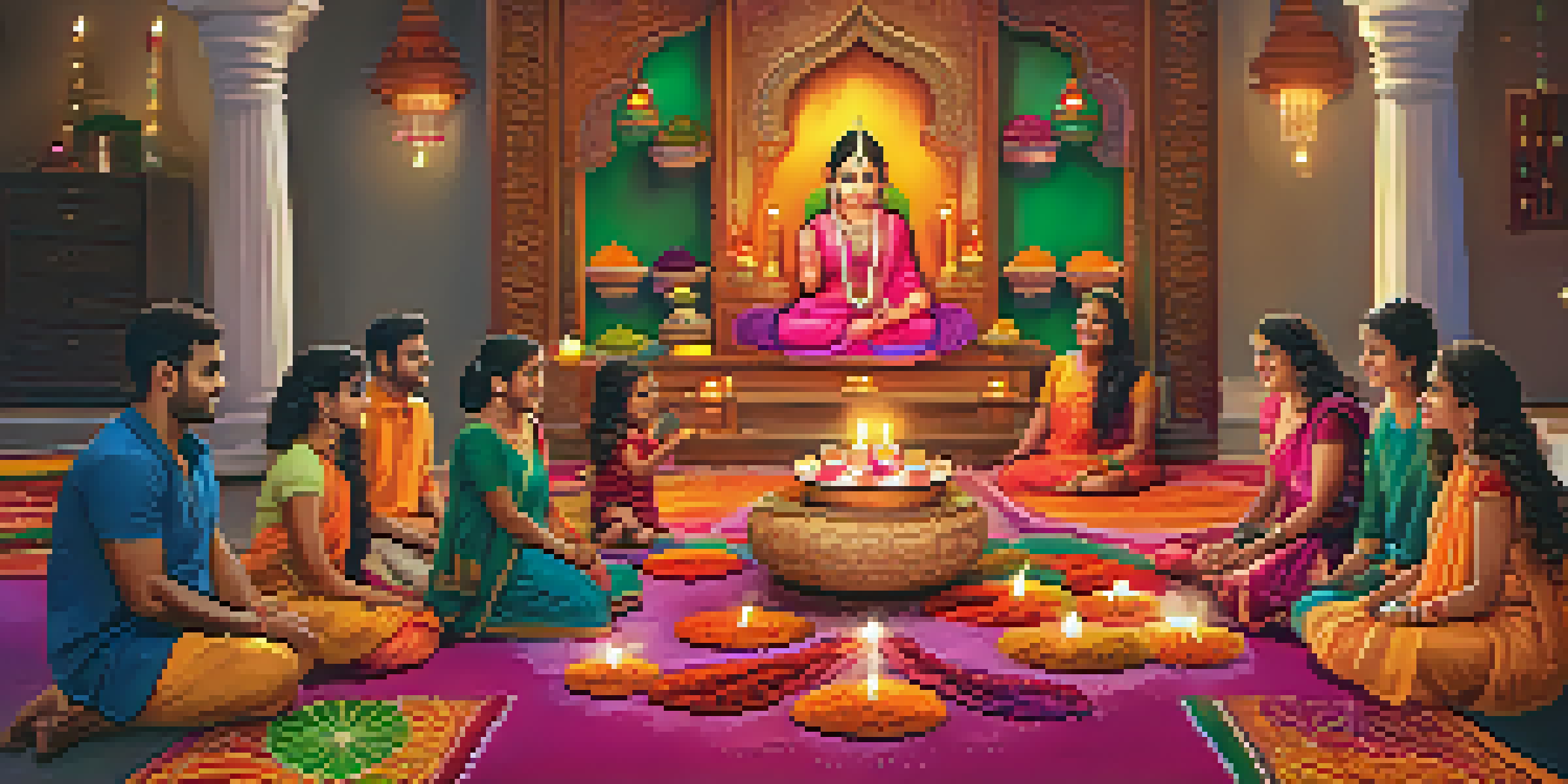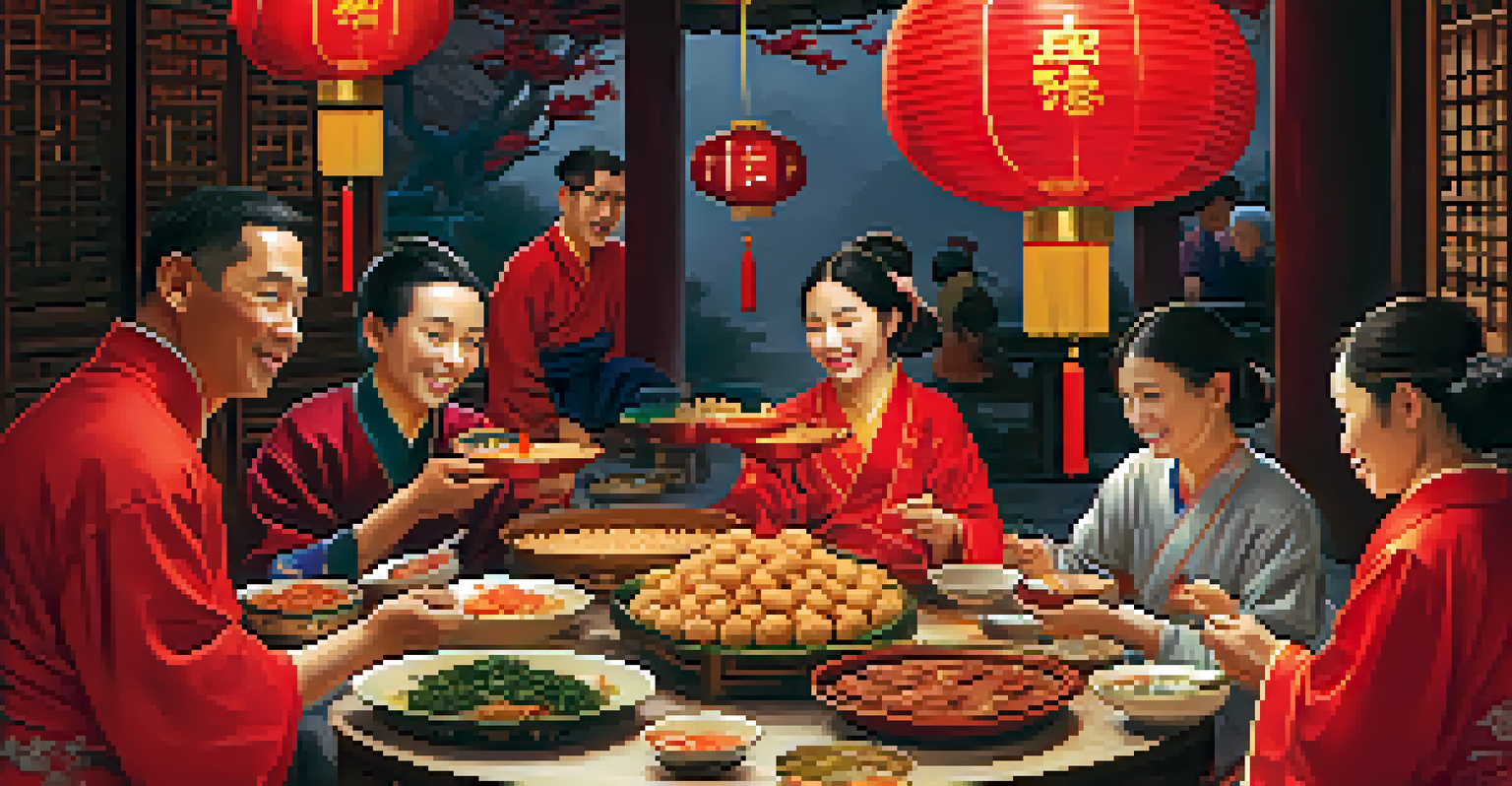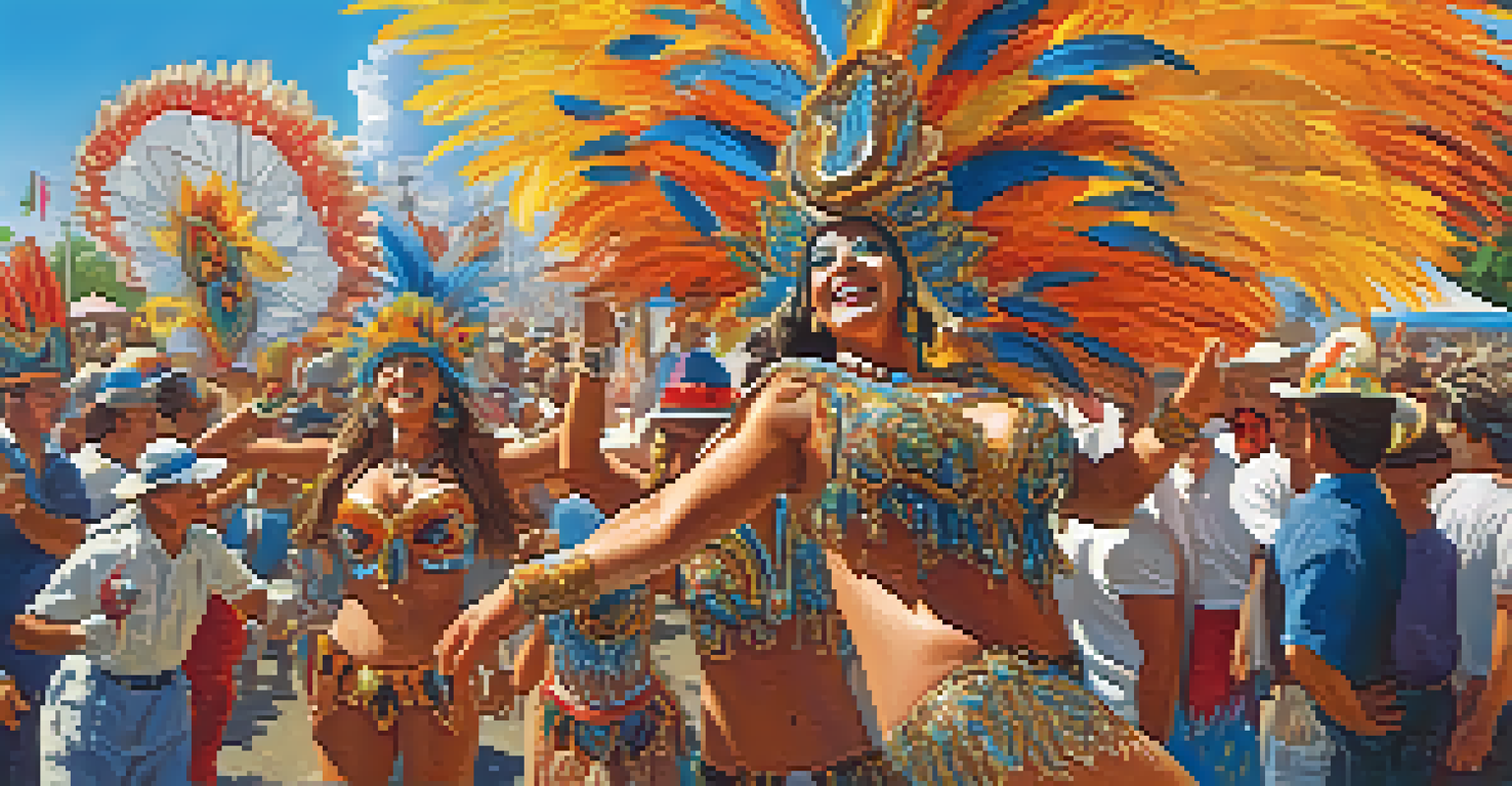Cultural Festivals: Celebrating Diversity and Faith Together

Understanding the Importance of Cultural Festivals
Cultural festivals are vibrant celebrations that showcase the diversity of traditions and beliefs within a community. They serve as a platform for people to express their heritage, share their stories, and connect with others. In a world that often feels divided, these festivals remind us of our shared humanity and the beauty of our differences.
Cultural festivals are a celebration of the rich tapestry of human experience, bringing communities together and fostering understanding across diverse backgrounds.
These events are not just about food, music, and dance; they also encapsulate the values, histories, and spiritual practices that define various cultures. By participating in these celebrations, we gain insights into different ways of life, fostering understanding and respect among diverse groups. This cultural exchange enriches our communities and promotes harmony.
Moreover, cultural festivals often highlight the importance of faith as a unifying force. Whether it’s through religious rituals or spiritual connections, these events encourage individuals to reflect on their beliefs and how they intersect with those of others. This creates a sense of belonging and shared purpose that transcends cultural barriers.
Examples of Major Cultural Festivals Worldwide
Across the globe, there are numerous cultural festivals that celebrate diversity and faith. For instance, Diwali, the Hindu festival of lights, symbolizes the victory of light over darkness and good over evil. It’s celebrated with vibrant decorations, delicious sweets, and family gatherings, inviting everyone to partake in the joy.

Similarly, Eid al-Fitr marks the end of Ramadan for Muslims and is a time for community and gratitude. It’s characterized by festive meals, giving of zakat (charity), and communal prayers, emphasizing the importance of togetherness and compassion. Such festivals not only strengthen faith but also build bridges among different cultures.
Cultural Festivals Unite Communities
Cultural festivals serve as a vibrant platform for diverse communities to express their heritage, share stories, and promote understanding.
In the Americas, events like Dia de los Muertos in Mexico honor deceased loved ones through colorful altars and joyful celebrations. This festival blends indigenous traditions with Catholic influences, illustrating how cultures can intertwine and evolve. These examples highlight the rich tapestry of human experience that cultural festivals embody.
The Role of Food in Cultural Festivals
One of the most delightful aspects of cultural festivals is the food. Each celebration brings a unique array of dishes that reflect the traditions and flavors of specific cultures. Sharing food is a universal language, and during these festivals, it becomes a way to connect with others and experience different culinary heritages.
Food is a universal language that can bridge cultural divides and bring people together in celebration and understanding.
For instance, during the Lunar New Year, families prepare dumplings and rice cakes, symbolizing good fortune and prosperity. Similarly, during Thanksgiving, the meal is steeped in history, representing gratitude and togetherness. Food serves as a bridge that allows us to explore and appreciate the cultural significance behind each dish.
Moreover, food can spark conversations, stories, and friendships that might not have happened otherwise. It encourages people to gather, share their experiences, and learn about one another's backgrounds. In this way, culinary traditions play a vital role in celebrating diversity at cultural festivals.
Art and Music: Expressions of Cultural Identity
Art and music are integral components of cultural festivals, providing a powerful medium for expression. Through dance, visual arts, and performances, communities showcase their unique identities and histories. These artistic forms often tell stories that resonate with both the performers and the audience.
For example, the vibrant parades during Carnival in Brazil feature samba music and elaborate costumes, reflecting the country’s diverse cultural influences. Similarly, the traditional dances at Pow Wows in Native American communities convey deep spiritual meanings, connecting participants with their ancestry and heritage. Such artistic expressions foster a sense of pride and belonging.
Food as a Cultural Connector
The unique dishes offered during cultural festivals allow attendees to experience and appreciate the culinary traditions that reflect specific cultures.
Moreover, engaging with art and music allows festival-goers to experience the richness of different cultures firsthand. It encourages appreciation and respect for various traditions, paving the way for deeper connections and collaborations among diverse communities. In this way, festivals become a celebration of creativity and cultural continuity.
Promoting Inclusivity Through Cultural Festivals
Cultural festivals play a crucial role in promoting inclusivity within communities. They create spaces where people from different backgrounds can come together and share their experiences, fostering dialogue and understanding. This inclusivity is essential in building a cohesive society where diversity is celebrated rather than feared.
By inviting participation from various cultural groups, festivals encourage unity and collaboration. For instance, many festivals now incorporate workshops and activities that educate attendees about different traditions, helping to break down stereotypes and misconceptions. This hands-on approach allows individuals to learn about and appreciate the rich tapestry of cultures around them.
Ultimately, these festivals not only celebrate individual identities but also create a sense of belonging for everyone involved. When communities come together to celebrate their differences, they cultivate an environment of acceptance and compassion, paving the way for a more harmonious future.
The Spiritual Significance of Cultural Festivals
Many cultural festivals are deeply rooted in spiritual beliefs and practices. They often serve as a reminder of the values and teachings that guide communities, reinforcing their faith and traditions. By participating in these festivals, individuals connect with their spirituality and find meaning in their lives.
For example, the Hindu festival of Holi celebrates the arrival of spring and the victory of good over evil, with vibrant colors symbolizing joy and renewal. Similarly, the Jewish festival of Passover commemorates the Exodus, reminding participants of their heritage and the importance of freedom. These spiritual connections enrich the experience of the festival, making it more than just a celebration.
Art and Music Showcase Identity
Art and music play a crucial role in cultural festivals, allowing communities to express their unique identities and foster pride through creative performances.
Furthermore, the communal aspect of these festivals fosters a sense of collective spirituality. When people gather to celebrate their beliefs, they strengthen their bonds and create a supportive network. This shared experience not only deepens individual faith but also reinforces the values of community and compassion.
The Future of Cultural Festivals in a Globalized World
As the world becomes increasingly interconnected, cultural festivals are evolving to reflect this global landscape. While they continue to celebrate local traditions, many festivals are now embracing a more inclusive approach that incorporates diverse cultural influences. This evolution creates opportunities for cross-cultural interactions and collaborations.
For instance, music festivals often feature artists from various backgrounds, showcasing a blend of genres and styles. This not only enhances the festival experience but also promotes understanding and appreciation for different cultures. As communities adapt to a globalized world, these festivals can serve as a platform for dialogue and connection.

However, it's essential to strike a balance between preserving traditional practices and embracing new influences. As we celebrate diversity through cultural festivals, we must ensure that the essence of each tradition is honored and respected. By doing so, we can foster a future where cultural festivals continue to thrive and unite individuals from all walks of life.